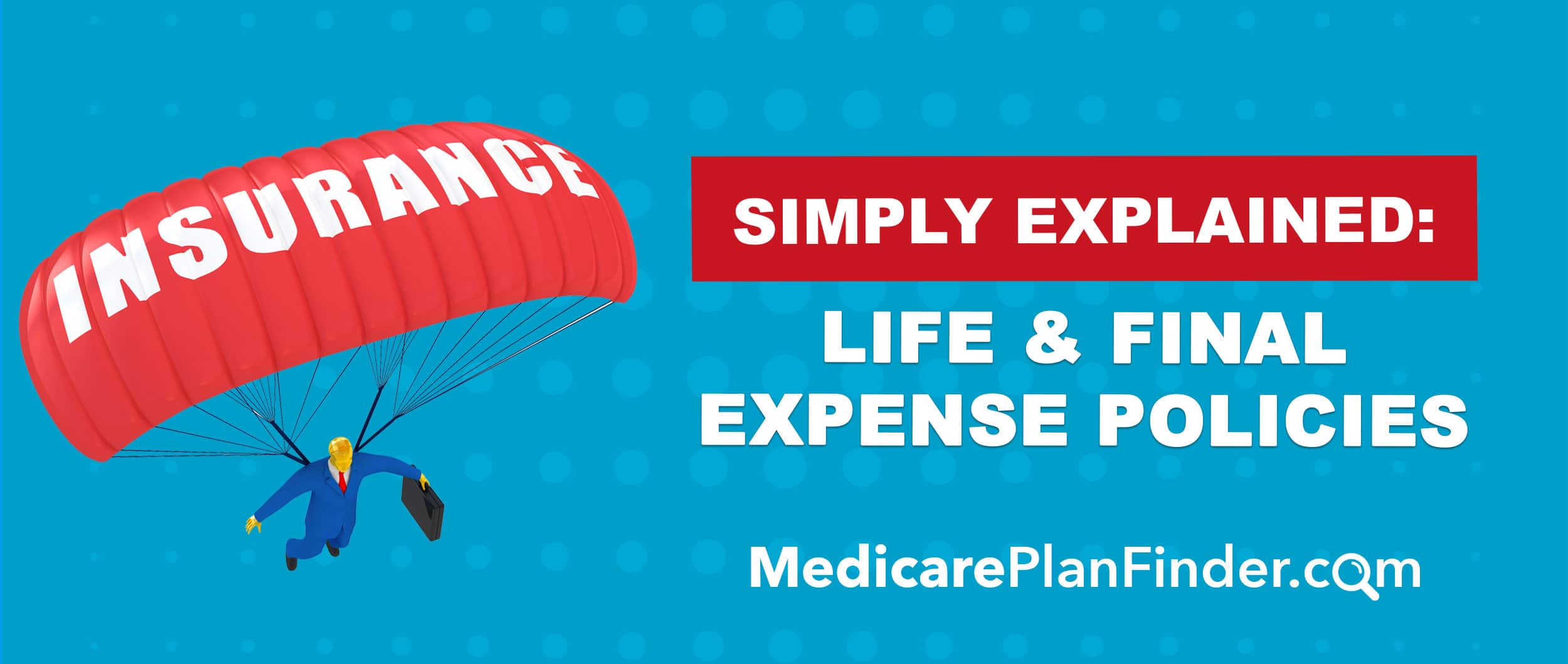
Life and Final Expense Insurance
May 6, 2019Though it may be unsettling to think about, your Medicare plan does not cover the high costs that come with death. It is important for you to figure out your life insurance plan now. That way, your loved ones won’t have to break their piggy banks to pay for your final expenses.
Your Insurance Options to Consider
Life insurance can be used either to help your loved ones after you die or to give you extra money to fall back on if you are diagnosed with a chronic or terminal illness. The right life insurance policy will give you peace of mind by minimizing your family’s financial burden.
Life insurance comes in two forms:
- Whole Life: valid for your entire life and potentially the days following your death
- Term Life: valid for a set amount of time, typically up to 30 years
There are two types of whole life insurance policies. If you’re 60 or older, a universal life insurance policy (a lifelong policy that gathers cash value as it endures) may be your best option, because you can make changes to the money you leave behind based on your ever-changing needs. If you’re 70 or older, you might need your insurance policy to cover medical expenses, and you may want to leave a set amount for your loved ones. In that case, a guaranteed universal life (a universal life insurance policy that gathers a guaranteed amount over time) will be your best option.
You may want to consider a term life plan if you are suffering from a temporary illness or injury and will not need the same amount of coverage for the next year or decade. Speak to an agent to determine which form of life insurance is best for you and your needs.

Difference Between Final Expense and Life Insurance
Final expense policies are solely for covering costs associated with funerals, burials/cremations, and sometimes medical bills for your final hours. Having final expense insurance means that when you die, your appointed beneficiary (typically a spouse or close relative) will receive reimbursement for your expenses. You will usually have the ability to change your beneficiary after your policy has been active for a year.
While final expense insurance will help cover final medical and burial or cremation costs, life insurance will help to support the family members you leave behind who may have been counting on your paycheck. It can pay for any outstanding debt, such as a mortgage.
Essentially, life insurance provides more coverage and can be used for far more than final expenses. Remember the differences between the two types of policies:
Though final expense and life insurance are very similar, they do come in the form of two separate policies. Original Medicare does not cover either one. However, you can set up a Medicare Advantage Health Savings Account (HSA), which is like a bank account for medical expenses. You can make sure that unused funds go towards your final expenses for a loved one.
Click here to read more about final expense policies.
Costs of Life and Final Expense Insurance for Seniors
Final expense insurance can cost anywhere from $5,000 to $50,000 depending on your age and health at the time of purchase. Life insurance will cost more or less depending on how high you want to set your policy value. The cost of life insurance depends on your age – basically, the younger you are, the cheaper your policy, so you’ll want to act as soon as possible. Policies can cost as little as $14 per month. Term life insurance can be the most affordable for seniors, but remember that the policy will not provide any benefit to your loved ones after you pass away.
Does Medicare Help Pay for Funeral Expenses?
No, Original Medicare doesn’t pay for funeral expenses or either burial or cremation costs when a beneficiary passes away. Medicare is only for medical expenses, so you’ll want additional insurance to make sure all of your final expenses are taken care of. While Medicare Parts A and B do not allow for your loved ones to receive money after you die, you can set up a high-deductible Medicare Advantage plan called a Medicare Medical Savings Account and dictate that your beneficiary gets any unused funds.
Social Security Benefits
When someone who collects Social Security benefits dies and leaves a spouse or child (usually a minor under 18) behind, the surviving beneficiary receives a one-time lump sum of $255. That money – called a death benefit – can be applied to funeral or burial/cremation expenses. Funerals usually cost much more than $255, so you won’t be able to rely on Social Security to take care of your family. A final expense policy can more than make up the difference and cover the cost of your funeral.
Final Expense Carriers We Work With
Medicare Plan Finder plan finder benefits advisors are here for you. We work with a variety of final expense insurance carriers so we can provide you with options and help find the best policy for your situation, including:
- Aetna
- AIG
- American Amicable
- Cigna
- Foresters
- Gerber
- Great Western
- Mutual of Omaha
- Prosperity Life
- Renaissance Life
- TransAmerica
Contact Us Today
You don’t want your loved ones to be faced with a tremendous financial burden on top of losing you. Talk to a Medicare Plan Finder benefits advisor about not only finding the right Medicare plan for you, but also the right life and final expense policies for you. Call us at 844-431-1832or contact us here to arrange a no-obligation meeting today.

This blog was originally published on March 30, 2017, by Anastasia Iliou and was updated by Troy Frink on May 06, 2019.

